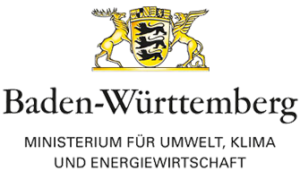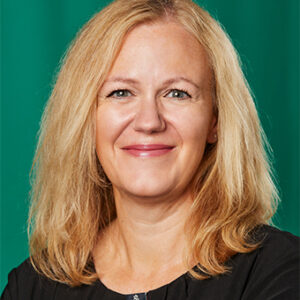Making the Energy Transition in Cities Work
Successful Smart East concept continuing in EU project WeForming
Research Focus: Climate Action Innovation
Within three years, the Smart East real laboratory has become a blueprint for urban energy transition projects. Located in the eastern district of Karlsruhe, a smart, energy-optimized and climate-friendly quarter evolved under the consortium leadership of the FZI Research Center for Information Technology. Thanks to digitalization and the extension of photovoltaic systems, 270 tons of CO2 were saved per year in this quarter. Innovative charging concepts for e-mobility emerged, as well as startups in the fields of Smart Charging and “Mieterstrom” – landlord-to-tenant electricity supply. Shortly, the concept will also be transferred to an industrial park in the Karlsruhe district of Durlach. The project will be continued within the EU Horizon project WeForming and can thus have a Europe-wide effect in the future.
Karlsruhe, 19.12.2023 – The real laboratory project Smart East started in March 2021 under the slogan “We bring the energy transition to the city”. It was funded by the Ministry of the Environment, Climate Protection and the Energy Sector Baden-Württemberg. Within the course of three years, the project partners from the fields of research, IT, and the energy sector successfully transformed the existing buildings of a mixed commercial district around the brewery Hoepfnerburg in the Karlsruhe district Oststadt into a smart, energy-optimized and climate-friendly city quarter. By deploying the concept of a real laboratory, research knowledge was successfully put into practice.
Mission Accomplished: Vision Becomes Reality
On September 23, a public closing event took place in the presence of Member of the Landtag Dr. André Baumann from the Ministry of the Environment, Climate Protection and the Energy Sector Baden-Württemberg. The aim of the event was to inform about the extensive project results. It took place as part of the statewide “Energiewendetage” – an event informing citizens about energy transition – at the iWerkX Smart Production Park in the Karlsruhe district Oststadt.
The project turned the vision of a climate-friendly energy supply for both commercial and living areas into reality – and more than that: Smart East also had a great impact beyond the project itself.
The first step was to digitalize the existing buildings – the FZI House of Living Labs, Technologiefabrik, the Cyberforum network, the multigenerational house Mehrgenerationenhaus Hoepfner Areal , iWerkx and Hoepfner-Villa – by using Smart Meters. Then, the buildings were networked via the Smart East quarter platform. This allows all energy flows and charging processes – for example electricity, heating or mobility – to be recorded live and digitally with regard to energy consumption and generation.
Quarter Reduces CO2 Emissions by 270 Tons per Year
New Business Models and Two Start-ups Emerged from Smart East
The real laboratory Smart East aimed at becoming a blueprint. An important milestone on this way was the development of new and worthwhile business models for energy suppliers and quarter operators. These models put sustainability and climate compatibility into focus and can be tested within the quarter, involving all stakeholders. Thanks to the expertise of the municipal utilities Karlsruhe Stadtwerke Karlsruhe two new business models for the economic use of charging infrastructure and photovoltaics, tested jointly with the BES (Badische Energie-Servicegesellschaft) , were brought to market. Two start-ups created in the course of the project provide the necessary IT infrastructure which allows the quarter’s energy suppliers an optimal marketing of the generated electricity also in the future: InnoCharge with a SaaS solution for Smart Charging for the optimized charging of electric vehicles and Solarize with a commercial SaaS landlord-to-tenant electricity supply solution.
Participation as Top Priority: All Stakeholders in Quarter Involved
Participation also plays an important role in making the energy transition work on a societal basis. It was no less important for the project Smart East. In five user workshops all quarter stakeholders – owners, tenants, system operators and energy suppliers – were involved and shared their experiences among each other and with experts.
Another success is the acquisition of RaumFabrik Durlach as a first business park to adopt the Smart East concept.
After three years as a lighthouse project, Smart East has defined a new, scalable concept for sustainable urban climate protection in Germany.
Next Dimension Europe: Upcoming Project WeForming
The project WeForming started with a kickoff meeting on October 17, 2023, in Athens, Greece. It is funded within the call “Sustainable, secure and competitive energy supply” under the topic „Smart-grid ready and smart-network ready buildings, acting as active utility nodes“ of the EU program Horizon. Over the next three years, the real laboratory Smart East will be further developed into a grid stabilizer and integrated in a network with partners in eleven European countries that operate five more real laboratories.
The new project will focus on topics such as battery storage, bidirectional charging of electric vehicles with energy recovery, dynamic electricity tariffs, green car sharing, sector coupling and optimized heat supply, for example with heat pumps.
About Project Smart East
The four network partners Karlsruhe Institute of Technology (KIT), Seven2one Informationssysteme and the municipal utilities Karlsruhe (Stadtwerke Karlsruhe) and the FZI Research Center for Information Technology as consortium leader have shown how the energy transition can be realized in cities. Technologiefabrik Karlsruhe, Smart Grids-Plattform Baden- Württemberg e.V., fokus.energie e.V., Cyberforum, Hoepfner Bräu, Karlsruhe University of Applied Sciences and Badische Energie Servicegesellschaft have participated in the project as associated partners.
Smart East was a lighthouse project of the TechnologieRegion Karlsruhe for sustainable and innovative energy solutions and was funded by the Ministry of the Environment, Climate Protection and the Energy Sector Baden-Württemberg. The patron was Lord Mayor Dr. Frank Mentrup.
Building on the practical experience from Smart East and other projects, two start-ups emerged in the course of the project: InnoCharge with its founders Dr.-Ing. Manuel Lösch and Dr. Andreas Fischer, and Solarize with its founders Frederik Pfisterer, Florian Feigenbutz and Andi Weiß.
About the FZI
The FZI Research Center for Information Technology, with headquarters in Karlsruhe and a branch office in Berlin, is a non-profit institution for information technology application research and technology transfer. It delivers the latest scientific findings in information technology to companies and public institutions and qualifies individuals for academic and business careers or the leap into self-employment. Supervised by professors from various faculties, the research groups at the FZI develop interdisciplinary concepts, software, hardware and system solutions for their clients and implement the solutions found as prototypes. The FZI House of Living Labs provides a unique research environment for application research. The FZI is an innovation partner of the Karlsruhe Institute of Technology (KIT) and strategic partner of the German Informatics Society (GI).
Smart East and WeForming are projects of the FZI research focus Climate Action Innovation. Its task is to promote multiple transfer-oriented research projects on sustainability and climate protection for the benefit of society.


Press contact
Valérie Hasler
Division Manager Communications
- +49 721 9654-345
- presse@fzi.de
- Headquarters Karlsruhe
Download Press Release (PDF):
Download Media:
Please click to download.
Smart East Video (Oktober 5, 2023):
Further Downloads & Links:
- Smart East project website
- Network partner Seven2one
- Network partner Karlsruhe Institute of Technology (KIT)
- Network partner Stadtwerke Karlsruhe (municipal utilites Karlsruhe)
- Associated partner Technologiefabrik Karlsruhe
- Associated partner Smart Grids BW
- Associated partner fokus.energie e.V.
- Associated partner Cyberforum
- Associated partner brewery Hoepfner Bräu
- Associated partner Karlsruhe University of Applied Sciences
- Associated partner Badische Energie-Servicegesellschaft
- solarize Energy Solutions GmbH
- InnoCharge GmbH
- Karlsruhe TechnologyRegion
- EU program Horizon
